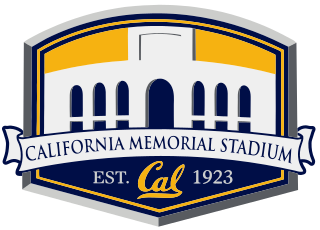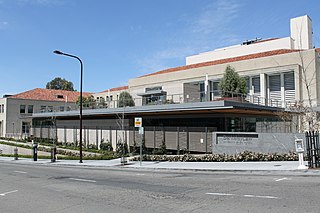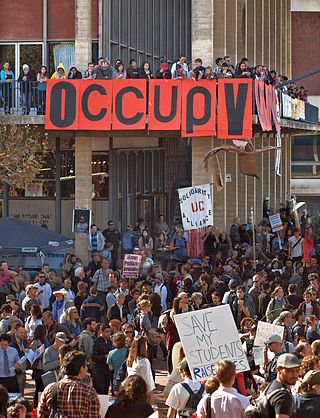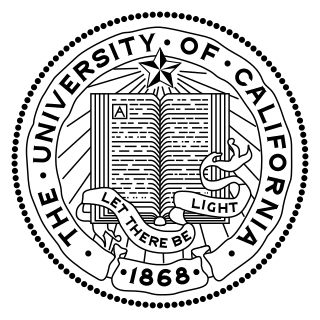
The University of California, Berkeley is a public land-grant research university in Berkeley, California. Established in 1868 as the University of California, it is the state's first land-grant university and the founding campus of the University of California system. Its fourteen colleges and schools offer over 350 degree programs and enroll some 32,000 undergraduate and 13,000 graduate students. In 2023, U.S. News & World Report's Best Global University Ranking ranked Berkeley as the fourth "best university" in the world.

The University of California, Davis is a public land-grant research university near Davis, California. Named a Public Ivy, it is the northernmost of the ten campuses of the University of California system. The institution was first founded as an agricultural branch of the system in 1905 and became the seventh campus of the University of California in 1959.

The California State University is a public university system in California, and the largest public university system in the world. It consists of 23 campuses and 7 off-campus centers, which together enroll 457,992 students and employ 56,256 faculty and staff members. In California, it is one of the three public higher education systems, along with the University of California and the California Community Colleges systems. The CSU system is officially incorporated as The Trustees of the California State University, and is headquartered in Long Beach, California.

Ishi was the last known member of the Native American Yahi people from the present-day state of California in the United States. The rest of the Yahi were killed in the California genocide in the 19th century. Ishi, who was widely described as the "last wild Indian" in the United States, lived most of his life isolated from modern North American culture. In 1911, aged 50, he emerged at a barn and corral, 2 mi (3.2 km) from downtown Oroville, California.

California Memorial Stadium also known simply and commonly as Memorial Stadium is an outdoor college football stadium on the west coast of the United States, located on the campus of the University of California in Berkeley, California. It is the home field for the California Golden Bears of the Pac-12 Conference.

The Cloyne Court Hotel, often referred to simply as Cloyne, is a historical landmark in Berkeley, California and currently one of the houses of the Berkeley Student Cooperative (BSC), a student housing cooperative. It is located at the north side of the University of California, Berkeley campus at 2600 Ridge Road, near Soda Hall and Jacobs Hall, and is the next door neighbor of the Goldman School of Public Policy.
A teach-in is similar to a general educational forum on any complicated issue, usually an issue involving current political affairs. The main difference between a teach-in and a seminar is the refusal to limit the discussion to a specific time frame or a strict academic scope. Teach-ins are meant to be practical, participatory, and oriented toward action. While they include experts lecturing on their area of expertise, discussion and questions from the audience are welcome, even mid-lecture. "Teach-ins" were popularized during the U.S. government's involvement in Vietnam. The first teach-in, which was held overnight at the University of Michigan in March 1965, began with a discussion of the Vietnam War draft and ended in the early morning with a speech by philosopher Arnold Kaufman.
The campus of the University of California, Berkeley, and its surrounding community are home to a number of notable buildings by early 20th-century campus architect John Galen Howard, his peer Bernard Maybeck, and their colleague Julia Morgan. Subsequent tenures as supervising architect held by George W. Kelham and Arthur Brown, Jr. saw the addition of several buildings in neoclassical and other revival styles, while the building boom after World War II introduced modernist buildings by architects such as Vernon DeMars, Joseph Esherick, John Carl Warnecke, Gardner Dailey, Anshen & Allen, and Skidmore, Owings and Merrill. Recent decades have seen additions including the postmodernist Haas School of Business by Charles Willard Moore, Soda Hall by Edward Larrabee Barnes, and the East Asian Library by Tod Williams Billie Tsien Architects.

Nicholas B. Dirks is an American academic and the former Chancellor of the University of California, Berkeley. Dirks is the author of numerous books on South Asian history and culture, primarily concerned with the impact of British colonial rule. In June 2020, Dirks was named president and CEO of The New York Academy of Sciences.
The history of the University of California, Berkeley begins on October 13, 1849, with the adoption of the Constitution of California, which provided for the creation of a public university. On Charter Day, March 23, 1868, the signing of the Organic Act established the University of California, with the new institution inheriting the land and facilities of the private College of California and the federal funding eligibility of a public agricultural, mining, and mechanical arts college.
The 2009 California university college tuition hike protests were a series of protests held on college campuses in the University of California system and elsewhere in California in September 2009 through March 2010. The size of the protests at each campus varied with over 4,000 people at UC Berkeley and 20 at UC Merced. Protests were mostly made up of students, although faculty, school employees and others joined in the protests as well. Protestors were vocal against a tuition increase, pay cuts and other cutbacks following a budget deficit. The protests have been described as a precursor to the Occupy movement.

The University of California, Berkeley, School of Law is the law school of the University of California, Berkeley. It is one of 14 schools and colleges at the university. Berkeley Law is consistently ranked within the top 14 law schools in the United States.
The Institute of Governmental Studies (IGS) is an interdisciplinary organized research unit at UC Berkeley, located in Moses Hall. It was founded in 1919 as the Bureau of Public Administration. IGS and its affiliated centers spearhead and promote research, programs, seminars and colloquia, training, educational activities and public service in the fields of politics and public policy, with a strong focus on national and California politics. Current IGS research focuses include institutional policy and design, political reform, term limits, campaign finance, redistricting, direct democracy, presidential and gubernatorial politics, representative government, the politics of race and ethnicity, immigration and globalization.

Occupy Cal included a series of demonstrations that began on November 9, 2011, on the University of California, Berkeley campus in Berkeley, California. It was allied with the Occupy Wall Street movement in New York City, San Francisco Bay Area Occupy groups such as Occupy Oakland, Occupy Berkeley, and Occupy San Francisco, and other public California universities. "Cal" in the name "Occupy Cal" is the nickname of the Berkeley campus and generally refers specifically to UC Berkeley.

The UC Davis pepper spray incident occurred on November 18, 2011, during an Occupy movement demonstration at the University of California, Davis. After asking the protesters to leave several times, university police pepper sprayed a group of student demonstrators as they were seated on a paved path in the campus quad. The video of UC Davis police officer Lt. John Pike pepper-spraying demonstrators spread around the world as a viral video and the photograph became an Internet meme. Officer Alex Lee also pepper sprayed demonstrators at Pike's direction.
Occupy the Farm is an ongoing social movement that started with the 2012 occupation of the Gill Tract in Albany, California, in protest of planned commercial development of public land and in support of preserving the land for the creation of an open center for urban agroecology and food sovereignty.
In 1968, the Third World Liberation Front (TWLF), a coalition of the Black Students Union, the Latin American Students Organization, the Filipino American Collegiate Endeavor (PACE) the Filipino-American Students Organization, the Asian American Political Alliance, and El Renacimiento, a Mexican-American student organization, formed at San Francisco State University (SFSU) to call for campus reform. Another Third World Liberation Front was formed at University of California, Berkeley in January 1969. These coalitions initiated and sustained the Third World Liberation Front strikes of 1968, one of the longest student strikes in US history.

The George and Mary Foster Anthropology Library is one of the subject specialty libraries at University of California, Berkeley, and is one of only three anthropology libraries at American research universities. The other two are at Harvard and the University of Pennsylvania. All three universities have specialized anthropology libraries and museums in support of their anthropology departments.













